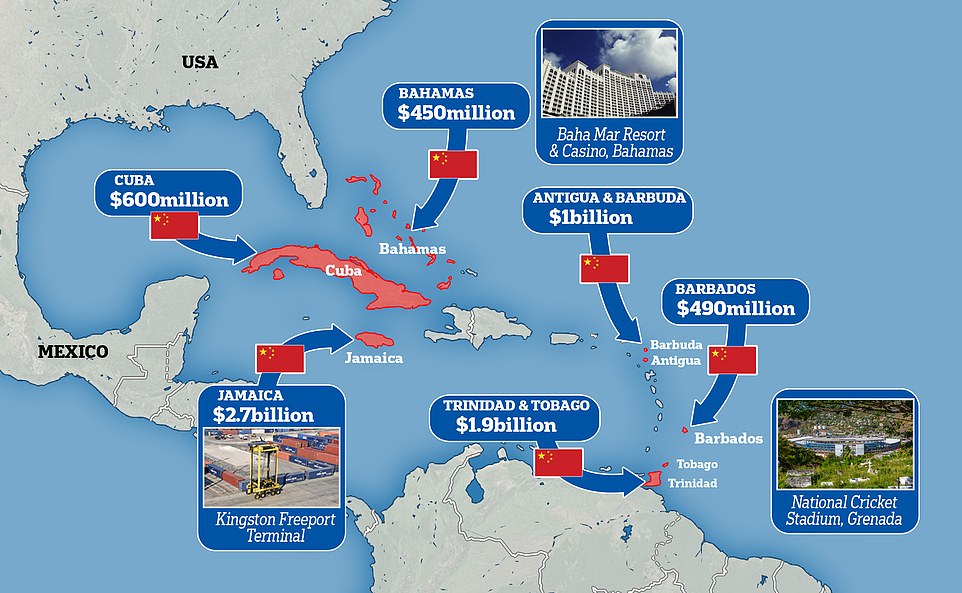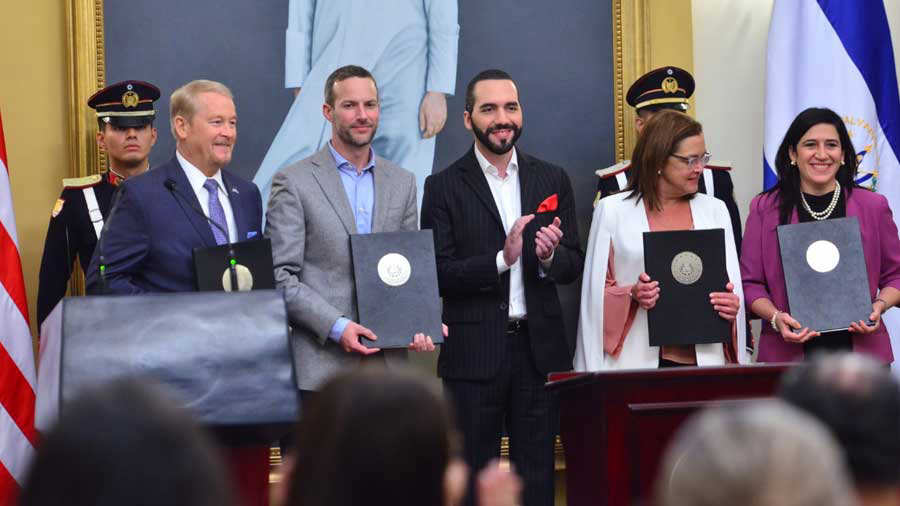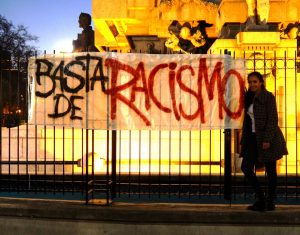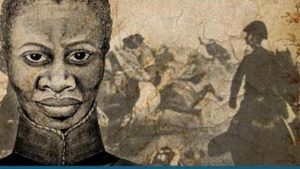loyola llothta
☭☭☭

2 November 2020
Chinese Presence in the Caribbean, New Global Power Encroaching on US Hegemony?
Many analysts have been closely watching the growth of Chinese naval power and its increasing presence across both the Indian and Pacific oceans, collectively known as the Indo-Pacific region. What is less talked about however is the Caribbean region, which, in its turn, is not an exception – it is also a stage for Chinese-US competition.
Under the framework of the Belt and Road Initiative (BRI), Beijing is willing to also deepen its military ties with Caribbean nations in such areas as disaster relief, peacekeeping etc. Caribbean countries such as Trinidad and Tobago, as well as Barbados, have been sending their military officers to China for training – which sometimes includes Chinese language and culture. Currently, in terms of military presence, China has no United Nations troops in Latin America, but in March 2019 Beijing deployed over 100 Chinese soldiers to deliver humanitarian aid in Venezuela.
Regarding Chinese economic presence, there are parallels between Chinese aid to Pacific Island countries and its aid policy in the Caribbean. It is effectively grants and loans with a focus on infrastructure.
Such investments and loans are also accompanied by a more aggressive public diplomacy campaign which has been championing China’s supposedly benevolent role in the Global South, especially since the beginning of the COVID-19 outbreak. For example, Beijing has pledged a $1 billion loan to Caribbean and Latin American nations to help them to procure a vaccine, and has also joined the COVID-19 mass vaccination program of the World Health Organization, unlike the US.
Speaking of diplomacy, Chinese investment in Caribbean countries seems to be tied to their recognition of the “One China” principle (as is the case with the Pacific). In September 2019, for instance, Chinese commerce official Wang Xiaoyang stated that Beijing could provide Haiti with “interest-free loans” as well as “concession loans”, as long as Haitian officials could “uphold the One China principle”. In spite of Chinese advancements, Haiti is still one of the 15 nations that recognizes independent Taiwan. In March 2020, Haiti expelled the Taiwanese ambassador over what was supposedly a small incident.

Source: InfoBrics
Similarly, the Dominican Republic’s recognition of Beijing, while breaking off relations with Taiwan in May, paved the way for Chinese-Dominican cooperation which includes a Chinese $10 billion infrastructure investment plan.
Gaining support for the One China principle in the diplomatic arena is clearly one of Beijing’s goals behind its growing presence in the Caribbean, but, in the long run, it is part of a wider Chinese long-term geopolitical strategy. The “CELAC and China Joint Plan of Action for Cooperation on Priority Areas 2019-2021” document, for instance, clearly shows Beijing´s intentions to extend its relations with the Community of Latin American and Caribbean States (CELAC) way beyond development and trade: it seeks to further strengthen Chinese-Caribbean ties in the fields of culture, science, and security as well, thus deepening political relationships in different spheres – at regional, and also sub-regional levels.
In 2016, China’s Policy Paper on Latin America and the Caribbean noted that China is to “actively carry out military exchanges and cooperation with Latin American and Caribbean countries,” as well as seeking “maritime cooperation”. China certainly aspires to secure its strategic access in the long run to resources such as bauxite and oil; it also seeks to secure trade routes to the US, which is, afterall, Beijing’s largest customer.
Being the second-largest economy in the world after the US, China actively builds up its naval power. According to the IISS, from 2014 to 2018, China launched naval vessels equivalent to the total number of ships serving in the navies of Germany, India, Spain, Taiwan and the United Kingdom. Now China’s navy is now one the largest one in the world in terms of ship numbers (considered around 330 vs. the US 300). Beijing certainly aspires to further project is naval power globally; however, the US Navy still is the dominant global force in the seas. For China, in fact, there could be some challenges to be faced in becoming a global naval power as Beijing already has a huge funding burden, and is behind the US in anti-submarine warfare or aircraft carriers, for example. But China is working hard to catch up.
All of the above clearly concerns Washington. American dominance in the Caribbean, particularly, became total after the Treaty of Paris (1898) when the US “legalized” its annexation of Puerto Rico and Cuba came to be under their tutelage. That was the final nail in the coffin of what was once the Spanish mare nostrum. The United States might have lost Cuba in 1953, but the Caribbean has to large extent in fact remained an American zone of influence.
Could this be starting to change?
Although there was a period of relative disengagement by Washington in Latin America, the US has been struggling to reassert its hegemony in the face of growing Chinese presence. Some analysts describe such competition as a new cold war. And Venezuela is a hot spot in this “war”. Iranian oil tankers have been crossing the Caribbean sea and entering Venezuela’s waters. They do so without American intervention probably due to Beijing’s backing as China has thrown its full diplomatic support to both Iran and Venezuela and has been very outspoken both against the return of UN sanctions on Iran and against the US oil “embargo” on Venezuela.
Cuba too might come to be in the spotlight in the near future. In recent years Chinese-Cuban cooperation has increased significantly. In October 2018 National Defense Minister Wei Fenghe and Cuban Minister of the Armed Forces Cintra Frias pledged to deepen both countries’ military ties. And in 2018 satellite images showed a new surveillance radome on the Bejucal Cuban base – such can be used for missile tracking, and signals interception. According to some reports, these are the signs of some Chinese military presence there.
As another example of the so-called “new cold war”, the US has been militarizing the Caribbean Sea to encircle Venezuela, and they also compete with China for influence in both Guyana and Suriname in light of recent major oil discoveries.
Such dispute involves the realm of discourse. In this context, Barbados’ recent drive to remove Queen Elizabeth as its Head of State (the country joined BRI last year) has also been blamed on China by Tom Tugendhat, the chairman of the British Parliament’s Foreign Affairs Select Committee. He accused China of using “infrastructure investment and debt diplomacy” to pressure Barbados into making such move – even though there has been a public opinion turn towards Republicanism in Barbados for over 15 years. This can be interpreted as part of a narrative war. The fact that China is lending billions of dollars to other Caribbean Commonwealth nations – these are nations who still have the British monarch as their Head of State – has certainly prompted concern amid British and Western political elites.
To sum it up, China’s increasing presence in the Caribbean serves many purposes and is yet another example of its rise to the status of a new global superpower, a process that has been going on for some years. If China’s geostrategic and economic interests in Latin America advance further, the need for a naval presence might also arise. So maybe in the near future we will hear of Chinese plans for a naval base in the Caribbean like the one in Djibouti in the Horn of Africa. The truth is that the US cannot afford to any longer take the Caribbean as their own backyard for granted.
Link:
Chinese presence in the Caribbean is yet another sign of its growing global power











